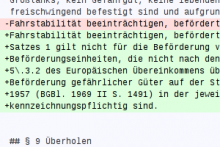On the usefulness of Akoma Ntoso
There's been very few laws that I followed closely, but all of them had a direct impact on my life, so I took this seriously. I didn't actually follow laws, but rather legislative processes because I either wanted a change or I was averse to it. In both cases, the object of interest was not a law itself, but its evolution.
You should already know that most laws are hand-crafted patches applied to previous laws. There are virtually no laws that are written from scratch, one notable exception is the constitution. Other laws refer to past laws.
For example, today's law that extends the powers of the Belgian intelligence service is a patch applied to the law that created the service in 1996, and it says literally this:
- Go the the article 3 of the past law and append this extra paragraph
- commit your changes in the legislative branch
- push to the executive branch
If you go and search for the original law, you won't find it that easily, because laws were digitized back to 1998, while the original law dates from 1996. If you are lucky, you'll have free online access to the so-called 'consolidated' version of the law. That is, a version with all the patches applied. However:

